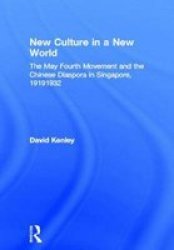Description
This essay discusses the May Fourth Movement, which was a period of intellectual and cultural ferment in China in the 1920s. The movement spilled over into the overseas Chinese communities, and the Chinese in Singapore were particularly affected by it. The essay argues that the Chinese in Singapore had to first imagine themselves as part of the Chinese nation before they could fully participate in the movement. Singapore's new culture advocates also adapted the movement's ideas to fit their situation. This essay provides a valuable insight into transnationalism and the power of nationalism.
During the 1920s, China's intellectuals called for a new literature, a new system of thought, and a new orientation toward modern life. Commonly known as the May Fourth Movement or the New Culture Movement, this intellectual momentum spilled beyond China into the overseas Chinese communities. This work analyzes the New Culture Movement from a diaspora perspective, namely that of the overseas Chinese in Singapore. Because they were members of a diaspora, the Chinese in Singapore first had to imagine themselves as part of the Chinese nation before they could fully participate in the movement. Also, Singapore's new culture advocates adopted then amended the movement's basic ideas to fit their situation.
This work furthers our understanding of transnationalism and reminds us that in our rush to deconstruct the nation we should remember the discursive power of nationalism as it both enhances and restricts the authority of its advocates.
